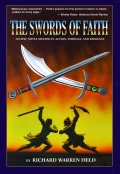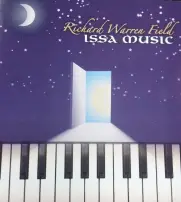Books-Into-Movie Commentary – “Extremely Loud and Incredibly Close” February 10, 2012
Posted by rwf1954 in books compared to movies, books into movies, Extremely Loud & Incredibly Close, literary commentary, movie commentary, movies, movies based on books, Sandra Bullock, Tom Hanks.Tags: book commentary, books, books compared to movies, books into movies, Extremely Loud & Incredibly Close, movie commentary, movies, movies based on books, Sandra Bullock, Tom Hanks
trackback
(Richard Warren Field wrote the award-winning novel,
The Swords of Faith. Read why this book will make a great movie.)
“Extremely Loud & Incredibly Close”—movie release date January 20, 2012 (limited, December 25, 2011)—is based on the novel, Extremely Loud & Incredibly Close written by Jonathan Safran Foer. After reading Extremely Loud & Incredibly Close, I suspected this would be one of the more challenging Books-Into-Movies posts I would take on. The story of the mysterious key is relatively simple, along with the phone messages from Oskar’s father, Thomas. But the book is infused with tangents and diversions, and exotic storytelling techniques, providing a lot of eccentric details. The story does not unfold in a conventional linear way as it bounces from first-person accounts set in different time periods—from Oskar, and from both his grandparents. The film-makers needed to make choices to create an accessible story for audiences (and they did just that, though hints of the time-bouncing are still evident in the film). So I’ll start with some big-issue generalizations comparing the book to the movie, then offer some discussions of details as they struck me. Two comments before I begin: 1) There are a lot of details and I may miss a favorite of someone reading this. Please feel free to remedy that with a comment. 2) I have tried hard to be accurate with these details, but with this book, there is a chance I will miss something. I invite sharp-eyed reader comments on that as well.
First, the basic story of the key was retained nearly detail-for-detail from the book. In the book, Abby Black calls Oskar back some time after he visited her, saying she wasn’t completely honest, that she didn’t know about the key but that her ex-husband might. Oskar does not discover her with the phone number from a newspaper clipping. The scene between Oskar Schell and William Black is mostly detail-for-detail from the book, including much of the dialogue. Differences: Oskar does not run off screaming at the end of their meeting. And there is no reconciliation between Abby and William Black. Also, I don’t recall any reference to an alcohol drink for William Black at their meeting. And, as in the book, the movie does not tell us what was in William Black’s safety deposit box. Frankly, as a reader and audience-member, I wanted to know!
Second, the storyline of the heartbreaking phone messages is also preserved from the book. That includes Thomas calling specifically for his son that last time, knowing his wife was not there because he had previously spoken to her on her cell-phone. In the book, Thomas tells his wife/Oskar’s mother that he is out of the building—she knows it’s not true, that he just made it up so she wouldn’t worry—and she believes he knows she knows. “Are you there” over and over is directly from the book.
Third, the filmmakers omitted a huge storyline from the book (time certainly was a limiting factor) involving the strange, quirky relationship between Oskar’s paternal grandparents. They both provide extensive first person narratives written in their own distinctive styles. We do get some of the grandfather—the not-speaking, the tattooed “YES” and “NO” on his hands are straight from the book. But many other details are omitted, and others changed. I’ll address more of this as I look at some of the details in the movie. The grandmother’s back-story is completely left out. Here, I’ll give only a rough outline of their back-story, inviting readers to buy and read the book if they want more. Both Oskar’s grandparents lived through the Allied bombing of Dresden during World War II. (There is also a clip of an interview transcript with a survivor of the Hiroshima atomic bombing right after the grandmother’s account of her husband leaving her, a scene apparently intended to connect war victims.) Both were traumatized by their experience at Dresden. Oskar’s grandfather is so traumatized that he is literally afraid to live. He leaves his young wife before Thomas is born, afraid to be a father. He writes endless, voluminous letters to his child, letters he never sends. (In the book, they receive a peculiar fate that I’ll address later in his post.) Oskar’s grandfather only returns after Thomas’s death on Nine-Eleven, and is also referred to as “the Renter” as in the book.
That completes the larger comparisons. Next, I’ll look at some details:
- Oskar does indeed offer all sorts of unusual, imaginative ideas in the book, like having everyone swallow microphones so people can hear each other’s heartbeats.
- Oskar’s business card, listing all his activities—straight from the book.
- Thomas Schell’s coffin is empty in the book is well. Oskar is taken with the idea of filling it with something, but he’s not sure what. “The Renter” has the answer. He tells Oskar he had a son, now dead. Oskar asks how “the Renter’s” son died, but “the Renter” answers he lost his son before he died. At this point Oskar does not know for certain “the Renter” is his grandfather. The narrative implies that he makes the connection at some point after experiencing the events he is describing. “The Renter” wants to bury all his undelivered letters to his now deceased son. So, with some assistance, they dig up Thomas Schell’s coffin and do just that.
- Walkie-talkie communications between Oskar and his grandmother are from the book.
- In the book, Thomas Schell tells his son the story of the “Sixth Borough.” In the movie, this becomes a quest for Oskar. In the book, Thomas gives Oskar a number of puzzles to solve. So the movie combines the “Sixth Borough” fairytale with the puzzle-solving aspect of their relationship.
- Oskar certainly sees the search for the lock to fit the key as an extension of his relationship with his father. In the resolution scene with William Black in the book, he wants the explanation to take as long as possible. I do not recall the detail about the sun exploding, then taking eight minutes to reach the earth. But this idea is consistent with Oskar’s character and approach to events in the book.
- The newspaper article with “not stop looking” circled is straight from the book.
- Oscar counts lies and tells laughable lies to explain why he is missing school in the book as well as in the movie.
- There is a slight reference to Stephen Hawking and his book A Brief History of Time in the movie. In the book, Oscar writes Hawking over and over, wanting to be his protégé. He receives polite form letter responses until nearly the end of the book when he receives a long personal response from Hawking inviting Oskar to join him for a few days inCambridge. This happens right after Oskar finds William Black.
- I do not recall any scene in the book with Oscar and his father at swings in the park. (Readers, let me know if you saw this somewhere in narrative or images.)
- Oscar plotting the contacts with every Black in the phonebook is straight from the book.
- I simply don’t recall any reference to Asberger’s syndrome tests in this book. I scoured the book for this, and just did not see it. At the end of the book, after Oscar returns from filling his father’s coffin with “the Renters” letters, Oskar begs not to be hospitalized. His mother assures him she finds nothing wrong with him. As in the movie, she tells him his father would have been proud of him. Readers, again, if anyone knows of a specific reference to Asberger’s (not some drawn implication, which personally I don’t find convincing), please add a comment.
- In the book, “the Renter”/Oskar’s grandfather does not go with Oskar to find any of the Blacks. One of the Blacks contacted by Oskar joins his search for awhile, getting him to use public transportation, even the Staten Island Ferry at one point. He leaves the search when he joins with a woman, another Black, who has been living up in the Empire State Building. We do find out later that Oskar’s grandfather has surreptitiously followed him and his elderly Mr. Black companion. Filmmakers clearly made a choice to combine these characters to save the time of introducing and developing another storyline, and to allow some exposition for the grandfather’s character.
- In the book, Oskar does say to his mother “if I could have chosen, I would have chosen you.” There’s no tantrum associated with this. Oskar’s mother silently walks away. Oskar goes to her and tries to take it back. She tells him he can’t take something like that back. Oskar asks if she’s angry. She tells him no, she’s hurt.
- I do not recall any sores or self-mutilation for Oskar in the book. Readers?
- “Heavy boots” is a clever phrase used in the book frequently, also used in the movie, a great phrase for personal baggage, for fears—but really seeming to convey more than just that.
- In the book, Oskar’s mother has a new romantic interest (a year after Nine-Eleven), Ron, a man she has met in a grief-counseling group. It is this relationship and her laughing with him that has Oskar confused. But she says, as in the movie, that she will never love anyone the way she loved Oskar’s father.
- Oskar concludes that his mother has known all along where he is going during his quest to solve the mystery of the key. (This is not confirmed one way or the other.)
- Imagining events in reverse, in the book, is a construction of Oskar’s grandmother. She applies this idea to traumatic events of her life, and eventually to everything. She takes the idea back to Noah’sArk, with the rain returning to the clouds in the animals leaving the ark. Oskar picks this up at the end of the book and the movie. In the movie, it is a drawn diagram activated by a string his mother pulls when she goes through Oskar’s journal of his quest for the lock that fits the key. In the book, we are given a series of images of a body falling from theWorldTradeCentertowers. When the pages are flipped, the body rises back into the building.
- The movie ends more sentimentally than the book. In the book, there are no thank you letters, with many of the Blacks who were part of Oskar’s quest coming to terms with some loss of their own. The final moment of the book is that series of images, flipped so the falling body rises back up.



In the book Oskar is always giving himself bruises, and tells people “he bruises easily” which is a form of self-mutilation.
I personally didn’t like the backstory of the grandmother and grandfather in the book, so I didn’t miss it in the movie.
Please let me know if you’re looking for a article writer for your blog. You have some really great articles and I believe I would be a good asset. If you ever want to take some of the load off, I’d love to write some content for your blog in exchange for a link back to mine. Please blast me an e-mail if interested. Many thanks!
Thanks for the offer, but I write all my own material. By approving your comment, and offering a link to your blog here – http://films-views.blogspot.com/ – I have hopefully accomplished letting some interested visitors here know about your blog, a no-nonsense review of a number fo varied films. If you find one of my Books-Into-Movies posts helpful to your blog readers, I know you will send them my way!
Oskar gives himself bruises constantly in the book, usually when he feels badly about doing something. He does so more in the beginning of the book. There is a part right after he tells his mother he wishes it were her and not Dad when she undresses him, thinking he’s asleep, and he hopes she does not see them but knows she probably does.
I came looking online for the missing answer to what was locked in the safety deposit box as I thought since the whole movie was sort of a quest it would make sense to reward the diligent with a tidbit that was deliberately left out of the movie. However, I guess I was wrong and it was never in the book either. When I think about it more, I suppose it fits that we never know….cause either does Oscar. Also it may be a tip of the hat to all the unanswered questions and mysteries the families of other 9/11 victims will always have.
Hello there! Would you mind if I share your blog with my twitter group? There’s a lot of people that I think would really appreciate your content. Please let me know. Thank you
Please feel free to Tweet all you want!